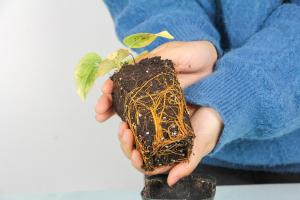How Often Do Bottled Water Plants Get Tested?
Bottled water plants are responsible for producing millions of bottles of drinking water every day. To ensure the quality of the water they provide, these plants are required to undergo regular testing and monitoring by government agencies and health organizations. In this article, we will take a closer look at how often bottled water plants get tested and what types of tests they undergo.
Regulations and Government Oversight
Bottled water plants are subject to regulations and oversight from various government agencies. In the United States, the Food and Drug Administration (FDA) is responsible for regulating bottled water as a food product. The FDA requires that bottled water plants adhere to strict manufacturing and labeling standards to ensure the safety and quality of the water they produce. In addition to these standards, the FDA conducts regular inspections of bottled water plants to ensure compliance with federal regulations.
Other countries also have their own regulations and oversight agencies for bottled water plants. The European Union, for example, has established guidelines for the production, labeling, and sale of bottled water. These guidelines are enforced by individual member states and through the European Food Safety Authority.
Testing Frequency
Bottled water plants are required to conduct regular testing of their products to ensure that they meet regulatory and quality standards. The frequency of these tests can vary depending on several factors, such as the size of the plant, the volume of water produced, and the type of water sources used.
Generally speaking, bottled water plants are required to test their products on a daily or weekly basis. In some cases, multiple types of tests are conducted on a single sample of water to ensure its safety and quality. These tests may include chemical analyses or microbiological tests to detect the presence of harmful contaminants, such as bacteria or viruses. In addition to these routine tests, bottled water plants may also conduct more extensive or specialized tests on a periodic basis.
Types of Tests
There are several types of tests that bottled water plants may conduct, depending on the nature of the water they produce and the regulatory requirements they must meet. Some of the most common tests include:
Microbiological tests to detect the presence of harmful bacteria or viruses.
Chemical analyses to detect the presence of contaminants such as pesticides, heavy metals, or organic compounds.
Physical tests to assess factors such as taste, odor, and clarity.
Radioactivity tests to detect the presence of radon or other radioactive elements.
In addition to these tests, bottled water plants may also be required to conduct tests on their packaging materials to ensure they are safe and comply with regulations. This may include tests for leaching or migration of harmful substances from the packaging into the water.
Conclusion
Bottled water plants play an important role in providing clean, safe, and convenient drinking water to millions of people around the world. To ensure the safety and quality of their products, these plants are subject to regular testing and oversight by government agencies and health organizations. By adhering to these regulations and conducting regular testing, bottled water plants can help ensure that their products are safe and reliable for consumers.

 how many times do yo...
how many times do yo... how many planted tre...
how many planted tre... how many pine trees ...
how many pine trees ... how many pecan trees...
how many pecan trees... how many plants comp...
how many plants comp... how many plants can ...
how many plants can ... how many plants and ...
how many plants and ... how many pepper plan...
how many pepper plan...
































